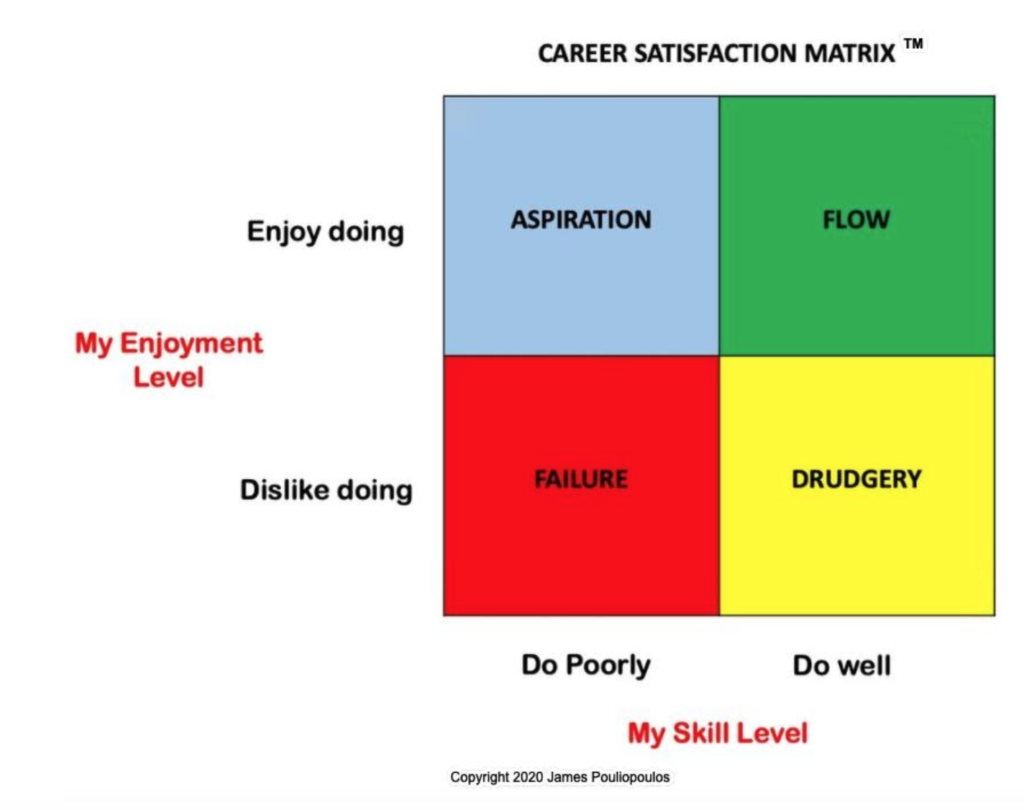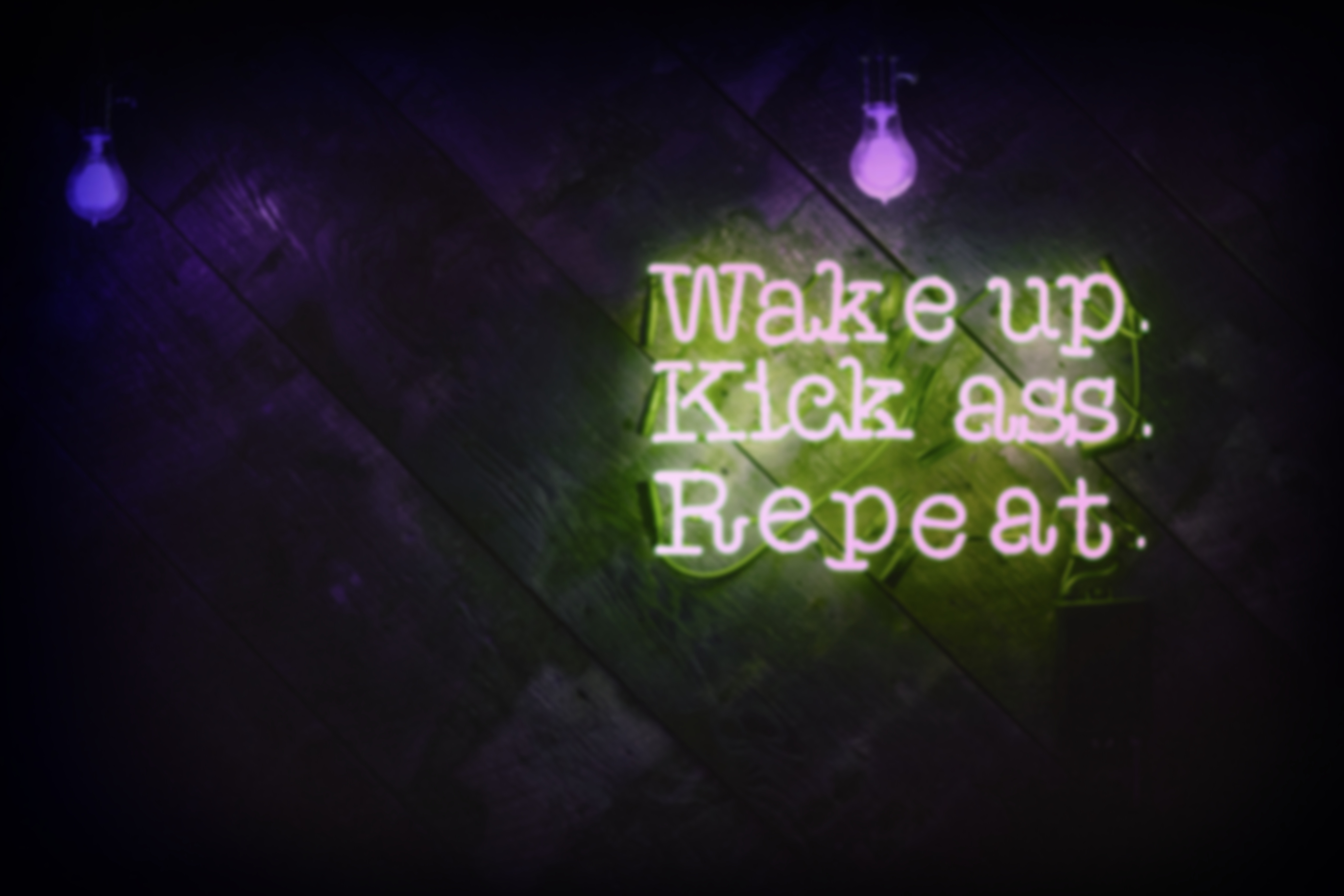Over 10 years ago I suffered from a form of situational depression. I hid the symptoms well wearing a mask of positivity for friends and colleagues. Most people didn’t know what I was going through, but my wife certainly saw a negative change in my personality at home. Eventually, I admitted to myself that something was wrong I got the help I needed, and I haven’t battled with depression since then.
This situational depression was in large part due to my unhappiness at work. For 10 years, I worked long hours in a role that was a bad fit for me, but which generated enough income for my family.
After dealing with my depression, I found myself looking for a new role that would allow me to focus on the skills I enjoyed using the most in an environment that was more supportive. In the course of that search, I was laid off and, suddenly, I was forced to figure out what was next. Rather than try to simply survive, I wanted to thrive.
It wasn’t an easy path, but it was worth it. I moved on from corporate life to become an educator, author, professional speaker, and consultant. I’ve never worked harder in my life, and I’ve never been happier or more optimistic about the future.
Entrepreneurs I work with have often shared their stories of stress-related health issues – both physical and emotional. Not surprisingly, the roots of these issues are similar to mine: the grind of the day-to-day existence of an entrepreneur. By its very nature, entrepreneurship demands that you be the “chief cook and bottle washer” for your venture. Early-stage entrepreneurs have to seemingly do everything required by their young company. And in order to achieve success, they have to everything well.
That’s a lot of pressure especially since we all have our strengths and weaknesses. And, we all enjoy or dislike different tasks we are required to do.
When you were a child, the adults around you probably made comments about the things you were good at doing.
“You’re great at math.”
“You’re a natural-born writer.”
“You’re so smart in biology.”
These external compliments gave you little hits of dopamine that made you feel happy for short periods of time. Dopamine is the feel-good hormone! Get enough dopamine hits from someone or something, and you want more and more.
This is how social media works, too. Someone likes your post or shares your tweet and you get that instant sense of gratification. And then, you want more. You begin posting and tweeting and snapping more often and checking your social media feeds more frequently in search of the dopamine inducing “likes,” “shares,” and “replies.” Your behavior is influenced, and in some cases, controlled, by your social media feeds.
Back to those childhood compliments.
Your parents and the other authority figures were trying to be nice when they complimented you on something you did well. It’s nice of them to notice you at your best. So, you sought more of their attention. Maybe you focused on doing more of the things for which they complimented you – even if you didn’t necessarily enjoy doing those things.
Most adults want their children to be happy and successful. They often try to give their children a shove in the right career direction by following their compliments by suggesting career paths.
“You’re great at math” became “You’re great at math, you should be an accountant.”
“You’re a natural-born writer. You should be a journalist.”
“You’re smart in biology. You should be a doctor.”
On the surface, these seem like natural and sensible correlations. Good at math? Find a job that requires lots of it like accounting, engineering, insurance underwriting, economist, statistician, financial planner, etc.
There’s a big leap of faith we make when we decide out career path solely on what we do well. Sometimes we rush in assuming if we are skilled at the tasks, we will enjoy the work.
That is not always the case. In fact, it’s rarely the case that the things we do well in childhood and early adulthood will lead us to a job or a career that we enjoy. We’ve been encouraging people to follow career paths based on their strengths and natural abilities for as long as we’ve been sending people off to work. Isn’t it ironic then that 70% of people in the workforce today are dissatisfied and disengaged from their jobs?
What are we missing?
The question we’ve been asking is too simple. We typically ask: What do you do well?
We need to use a two-part question instead: What do you do well and enjoy doing?
Entrepreneurs are often driven by the things they do well and which they enjoy doing but they are also required to do a lot of work that they do well but actually dislike doing for extended periods of time. This is where burnout and stress can take its toll. It’s never guaranteed that what you do well is something you enjoy doing.
To help visualize the effect of this phenomenon, I created Career Satisfaction Matrix and it helps us focus on where the issues are in someone’s career path. The matrix has two axes: Skill Level and Enjoyment Level.
 If you’re feeling a sense of burnout as an entrepreneur, consider where your daily work tasks fall in this matrix. And, be mindful of your employee’s daily tasks list. Are they burning out or in growth mode?
If you’re feeling a sense of burnout as an entrepreneur, consider where your daily work tasks fall in this matrix. And, be mindful of your employee’s daily tasks list. Are they burning out or in growth mode?
 If you’re feeling a sense of burnout as an entrepreneur, consider where your daily work tasks fall in this matrix. And, be mindful of your employee’s daily tasks list. Are they burning out or in growth mode?
If you’re feeling a sense of burnout as an entrepreneur, consider where your daily work tasks fall in this matrix. And, be mindful of your employee’s daily tasks list. Are they burning out or in growth mode?



